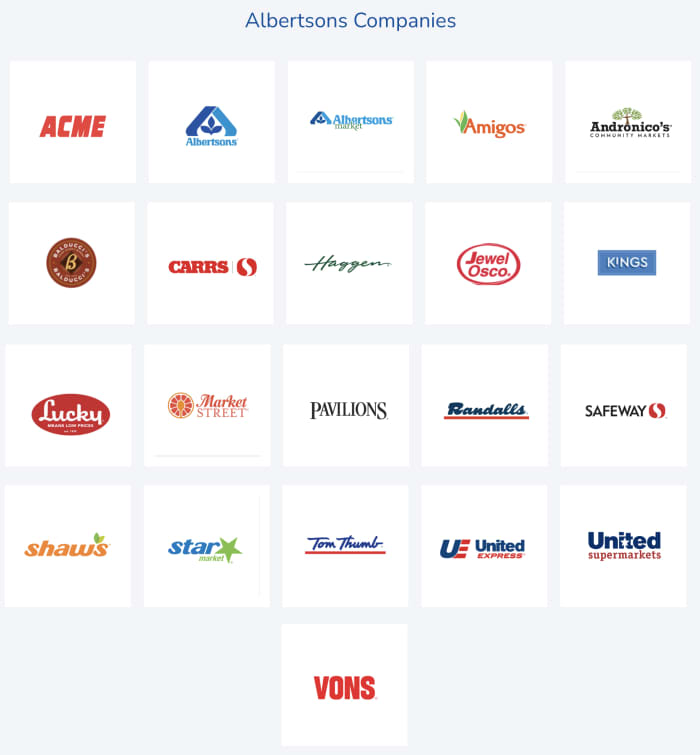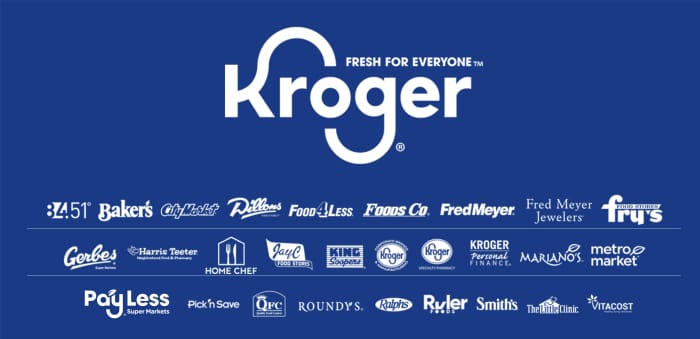Kroger Inc., facing regulatory pushback over its plan to merge with rival grocery chain Albertsons Cos. Inc. in a roughly $ 25 billion deal, said Tuesday it typically lowers prices for consumers after consummating a deal.
Critics of the deal have argued it’s more likely to lead to higher prices as it will further reduce competition, especially after both companies have been aggressive and active acquirers of smaller retailers with at least $ 19.5 billion of deals since 1998, as the New York Times reported in 2022. The biggest deal was Albertsons’ $ 9.4 billion takeover of Safeway in 2014.
“We believe the way to be America’s best grocer is to provide great value by consistently lowering prices and offering more choices,” Kroger KR, -0.59% CEO Rodney McMullen said in a statement on Tuesday.
“When we do this, more customers shop with us and buy more groceries, which allows us to reinvest in even lower prices, a better shopping experience, and higher wages.”
The retailer invested more than $ 125 million to lower prices at Harris Teeter after a 2014 merger, he said. It spent more than $ 100 million to cut prices at Roundy’s after a 2016 deal, he added.
That move and other measures reduced its gross margin by 5% over the last 20 years, it said, while rivals such as Amazon.com Inc. AMZN, -1.57%, Ahold Delhaize AD, -1.71%, Walmart Inc. WMT, -0.43% and Dollar General Corp. DG, -2.96% have grown margins by 22%, 4%, 1% and 2%, respectively in the same period, according to Kroger’s estimates.
Critics of the Kroger/Albertsons ACI, -0.40% tie-up have argued that the combined entity was more likely to raise prices, especially after food companies enjoyed record profits during the pandemic thanks to their pricing power.

Albertsons
Kroger and Albertsons also need to persuade regulators that the merger will increase competition even as it further consolidates the market. Opponents of the deal include a bipartisan group of attorneys general, who have sued Albertsons to block the payment of a nearly $ 4 billion special dividend until regulators complete a review of the proposed merger.
The deal also comes during a period of high inflation that has made shoppers weary and eager to find bargains. In its most recent earnings report from November, Kroger offered cautious guidance citing continued near-term economic pressures and food-at-home disinflation.
The Cincinnati-based company has been selling stores and making concessions to get the Albertsons deal over the line. It said its customers were showing signs of pressure from higher interest rates, reduced savings and fewer government benefits, even as inflation is decelerating.

Kroger
In January, Kroger and Albertsons said they remain in active dialogue with the Federal Trade Commission and individual state Attorneys General.
But they said the close was more likely to happen during the first half of Kroger’s fiscal 2024, which stretches through Aug. 17.
“While this is longer than we originally thought, we knew it was a possibility and our merger agreement and divestiture plan accounted for such potential timing,” the companies said in a joint statement.
Kroger has pledged to spend $ 500 million post-close to lower prices and to invest $ 1.3 billion to enhance the customer experience and $ 1 billion to support wages. The company has further said it would not close stores, distribution centers or manufacturing facilities, or lay off front-line employees. The combined entity will have more than 700,000 part-time and full-time employees.
Kroger’s stock was flat in early trade, and has gained 2.3% in the last 12 months, underperforming the S&P 500 SPX, which has gained 22.8%.
